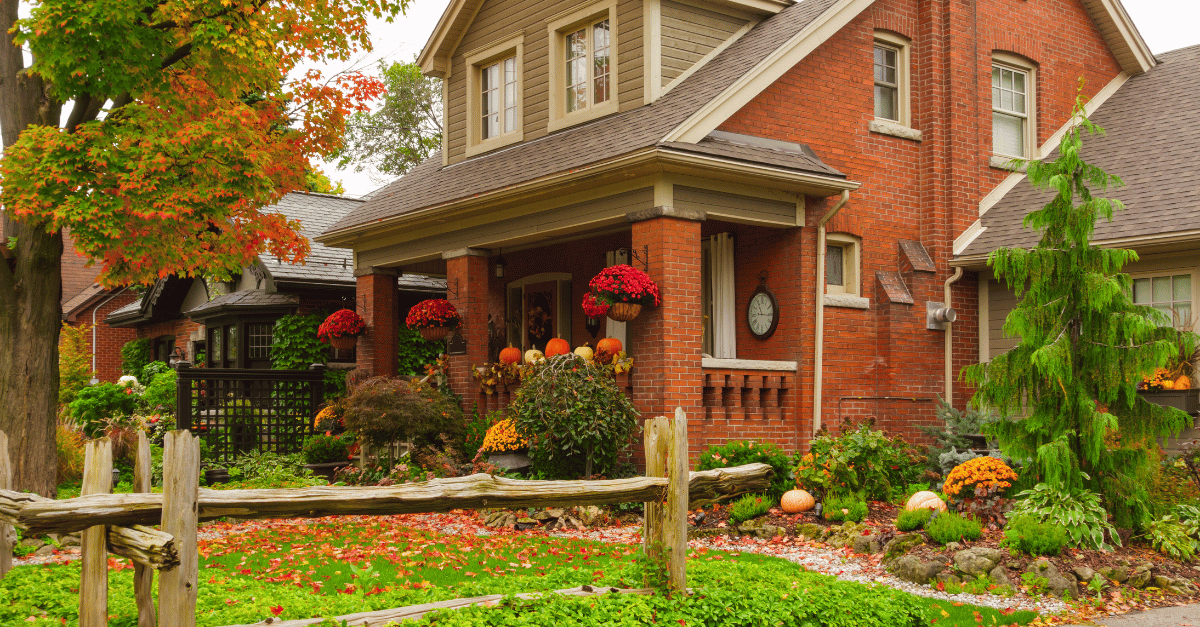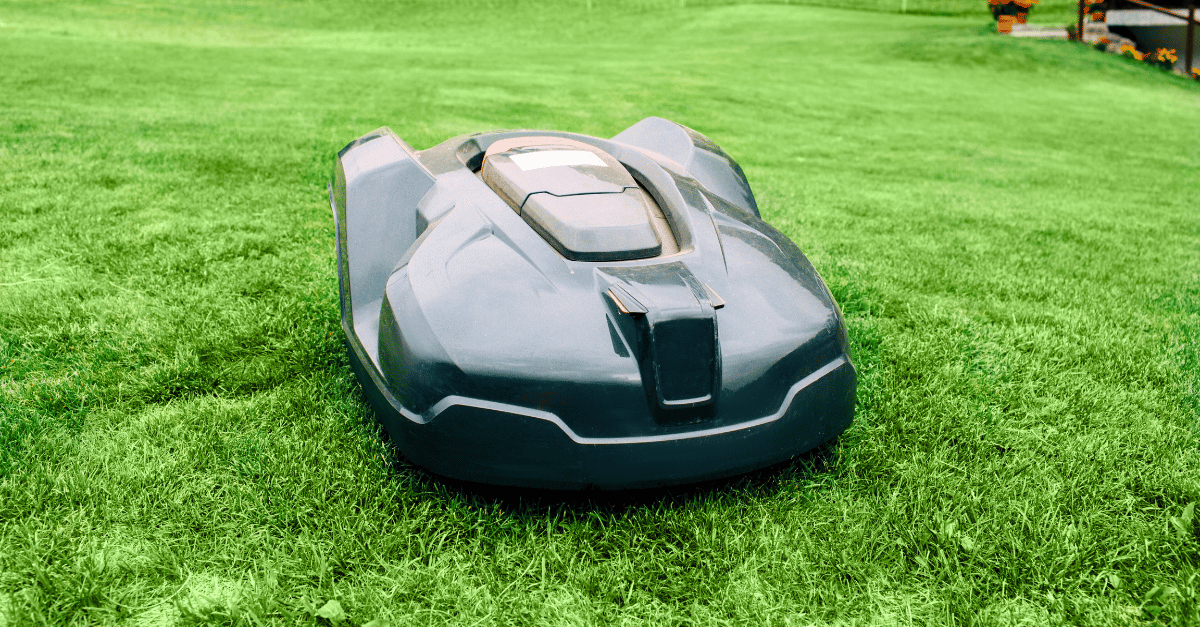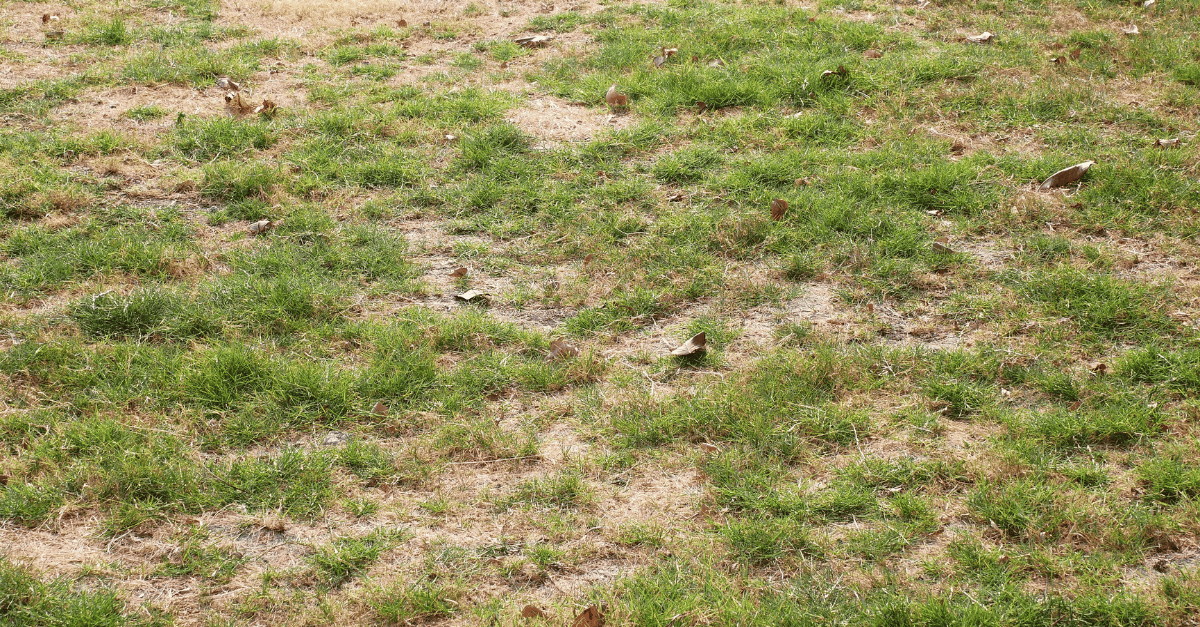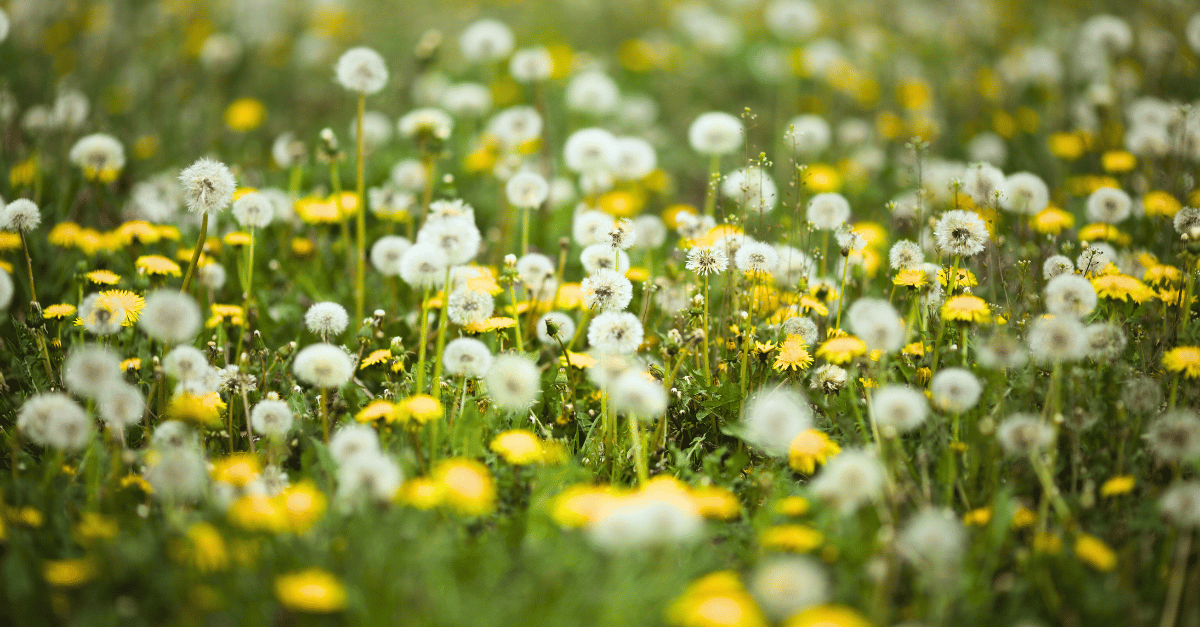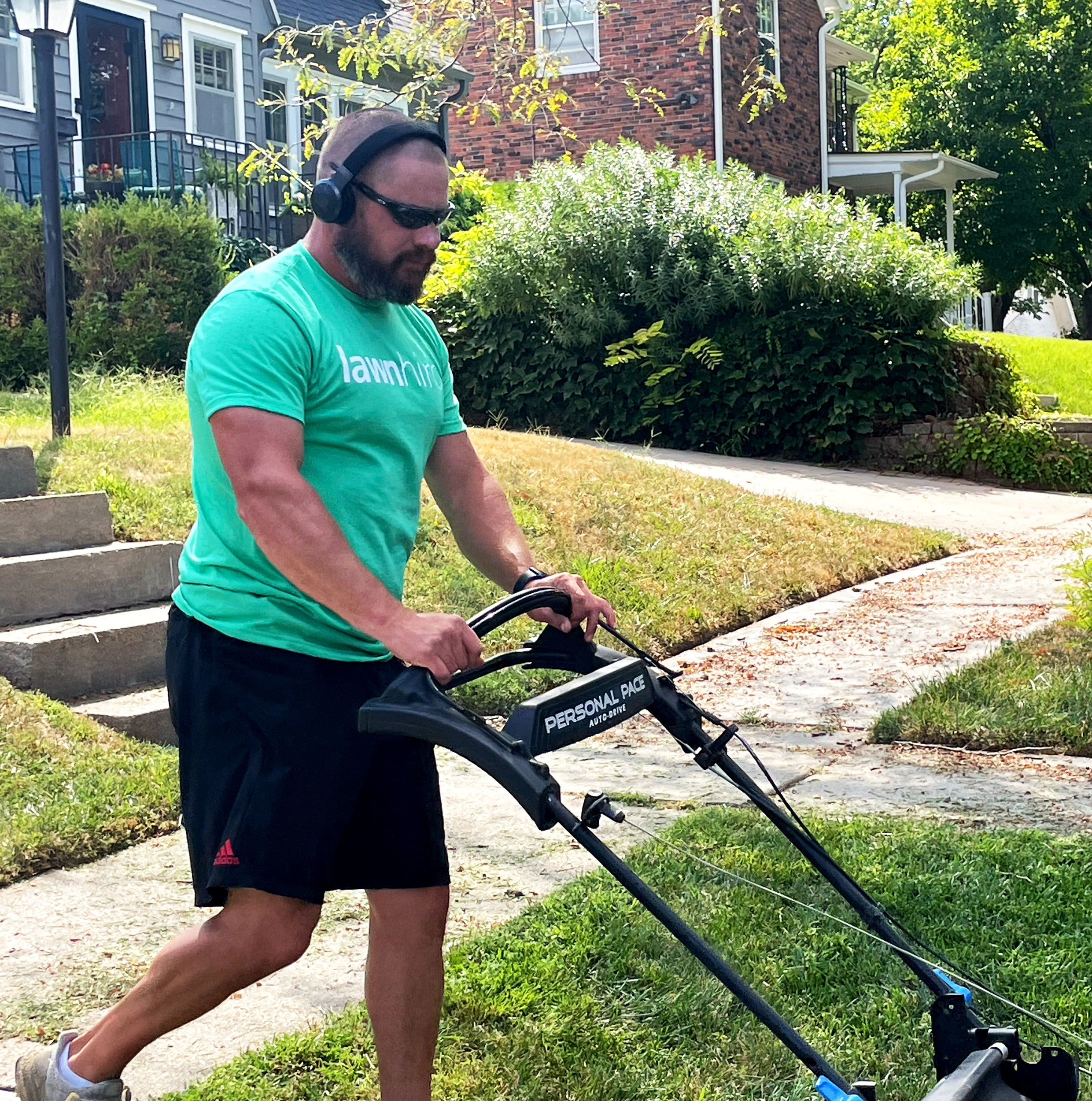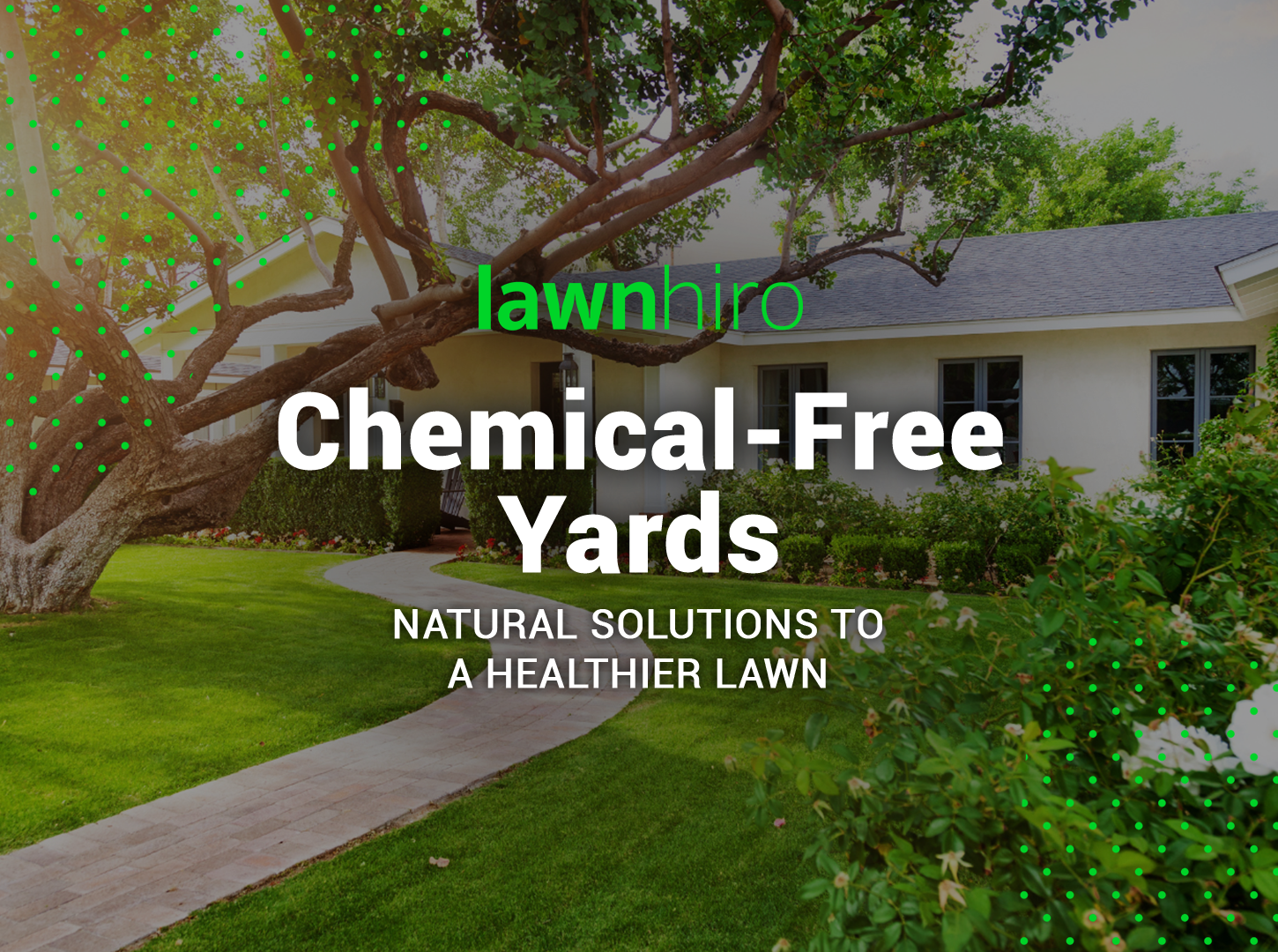
Your Path to a Chemical-Free Yard
Maintaining a beautiful, chemical-free yard is not only a great choice for the environment but also for the well-being of your family and pets. If you’re looking for ways to transform your lawn into a lush, vibrant, and eco-friendly space, you’ve come to the right place! We will explore natural solutions that allow you to take care of your lawn without resorting to harmful chemicals. And, if you need assistance, we’ll show you how to schedule lawn care services with Lawnhiro.
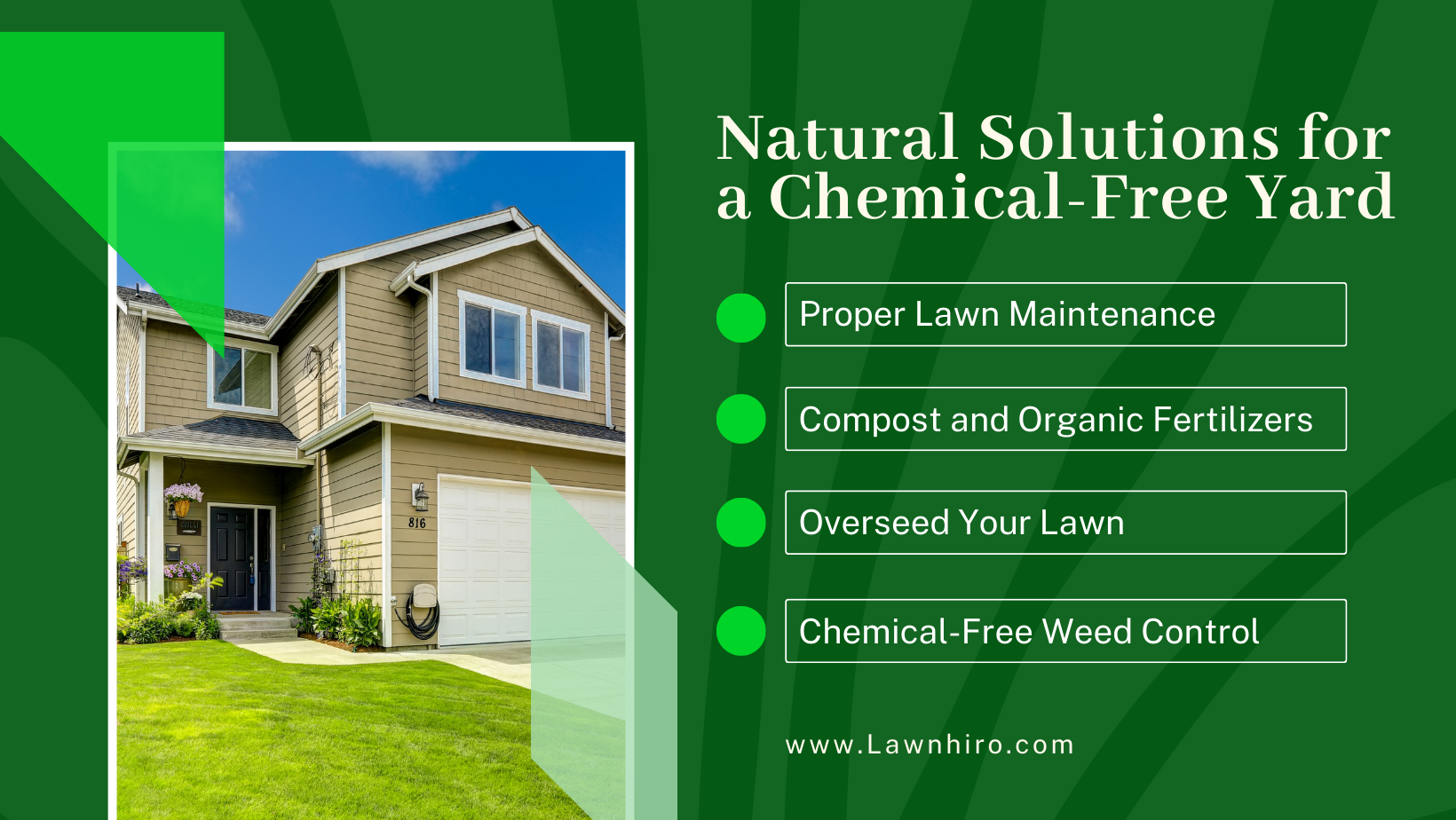
1. Proper Lawn Maintenance
The first step to achieving a chemical-free yard is to maintain your lawn properly. Regular mowing, watering, and aeration are essential. Mowing your grass to the right height (usually about 2-3 inches) will promote a strong root system and reduce the need for chemicals. A well-aerated lawn ensures that nutrients, water, and air can reach the roots, leading to healthier grass.
2. Compost and Organic Fertilizers
Instead of synthetic fertilizers loaded with chemicals, opt for natural alternatives like compost and organic fertilizers. Compost enriches your soil with essential nutrients and promotes healthy microbial activity, which is vital for a thriving lawn. Organic fertilizers release nutrients slowly, preventing the rapid growth that can attract pests.
3. Overseed Your Lawn
Overseeding involves spreading grass seed over your existing lawn. This practice helps fill in bare spots and strengthens the grass, reducing the need for chemicals to control weeds. A denser, healthier lawn naturally outcompetes weeds.
4. Chemical-Free Weed Control
Weeds can be a significant headache for any lawn owner, but there are chemical-free ways to deal with them:
- Hand Weeding: Removing weeds by hand is an effective and chemical-free approach. It may take some time, but it’s a sustainable solution.
- Mulch: Apply a layer of organic mulch to your garden beds to smother weeds and retain moisture.
- Vinegar Solution: A mixture of white vinegar, salt, and dish soap can be used to spot-treat weeds. Be cautious not to spray it on your desirable plants.
5. Integrated Pest Management (IPM)
Chemical pesticides can harm beneficial insects and upset the ecological balance in your yard. Integrated Pest Management (IPM) is a sustainable and chemical-free approach to managing pests. This strategy focuses on preventing and monitoring pests, using natural predators, and applying targeted treatments only when necessary. It’s a holistic way to keep your yard healthy without resorting to chemicals.
6. Watering Wisely
Proper watering is crucial for a chemical-free yard. Water deeply and infrequently to encourage your grass to develop deep roots. Use a rain gauge or a smart irrigation system to ensure you’re not overwatering. Overwatering can lead to shallow roots and a higher susceptibility to pests and diseases.
7. Choose Native Plants
Selecting native plants for your yard can reduce the need for chemical intervention. Native plants are well-adapted to your region’s specific conditions and require less maintenance. They also provide food and habitat for local wildlife, enhancing the overall health of your ecosystem.
Why Choose Lawnhiro for Your Chemical-Free Yard
While these natural solutions are effective, achieving a chemical-free yard may require some help. At Lawnhiro, we specialize in providing on-demand lawn care solutions that fit your schedule.

In conclusion, maintaining a chemical-free yard is both achievable and beneficial. From proper lawn maintenance and organic fertilizers to integrated pest management and water-wise practices, there are many natural solutions at your disposal. With Lawnhiro’s services, you can embark on a journey toward a beautiful, chemical-free yard that you’ll be proud to call your own. Schedule your lawn care service with us today and take the first step towards a greener, safer, and more vibrant outdoor space. Your lawn, your family, and the planet will thank you.


